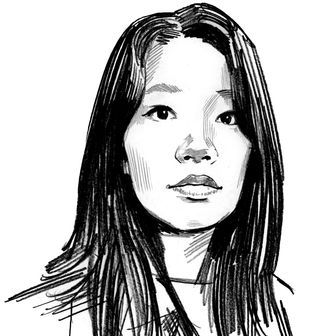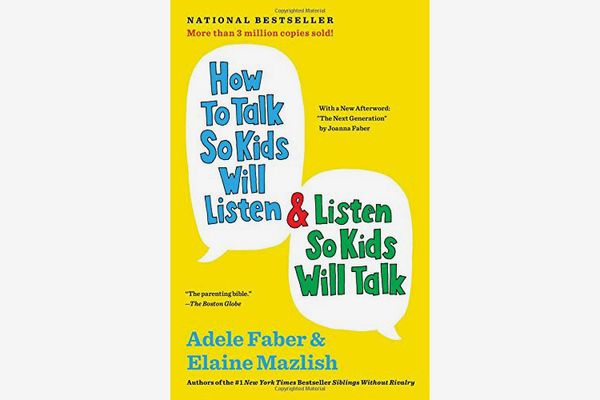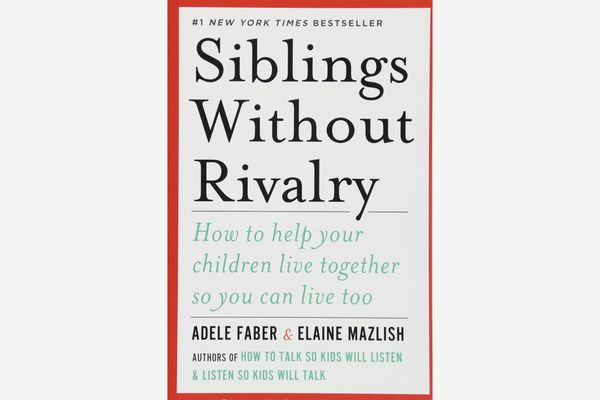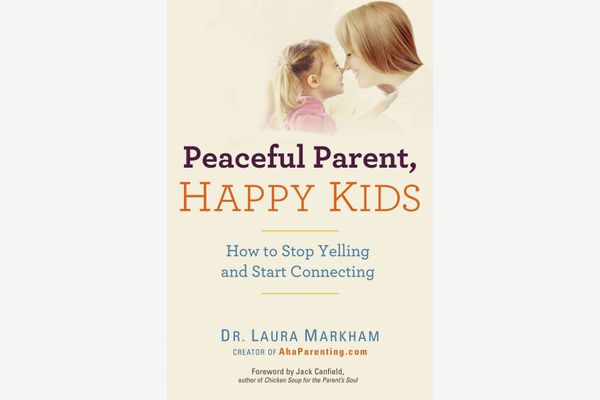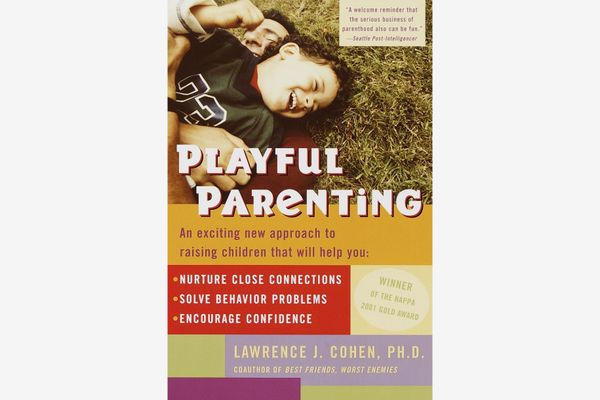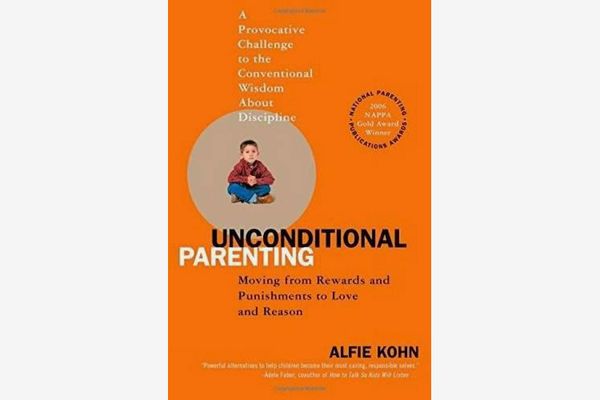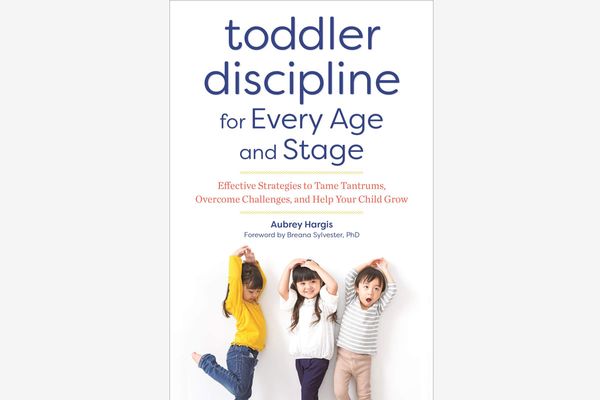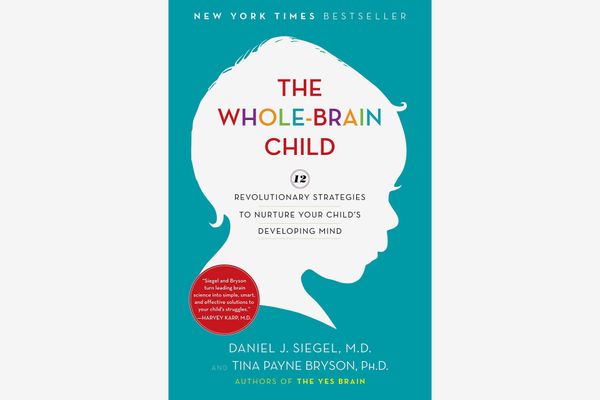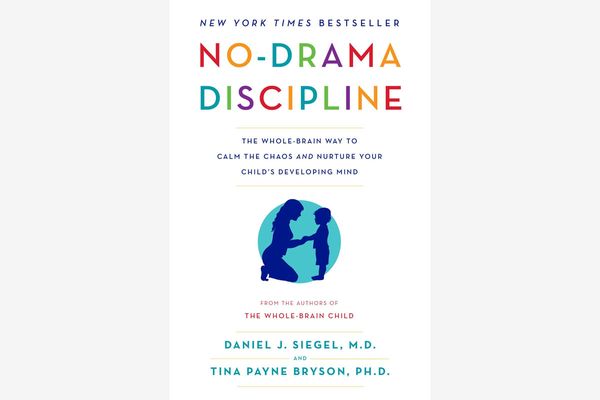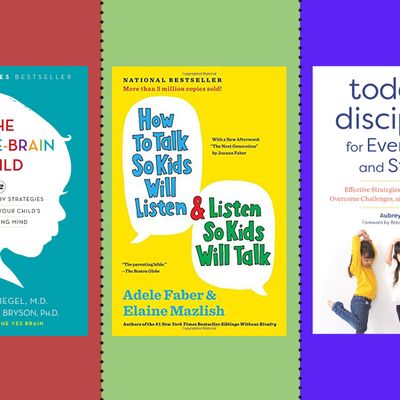
Welcome to Reading Lists, comprehensive book guides from the Strategist designed to make you an expert (or at least a fascinating dinner-party companion) in hyperspecific or newsworthy topics, from microdosing and psychedelic therapy to French cooking. Here, a selection of books on how to raise successful, emotionally healthy toddlers, according to child-development experts.
When you were getting ready to be a first-time parent, you might have read one or two pregnancy and baby books and maybe even took a couple of classes to prepare for the arrival of your little bundle of joy. But what happens after the first year of life when that baby turns into an independence-seeking toddler? To help you navigate the terrible twos and beyond, we consulted child psychologists, therapists, authors, and developmental experts to create a reading list of the best books on how to raise toddlers with patience and understanding.
Our panel of experts include Sarah S. MacLaughlin, author of What Not to Say: Tools for Talking With Young Children and senior writer at Zero to Three; Dr. Stephanie Lee, a psychologist at the Child Mind Institute; Dr. Eileen Kennedy-Moore, author of forthcoming book What’s My Child Thinking?; Maureen Healy, author of The Emotionally Healthy Child: Helping Children Calm, Center, and Make Smarter Choices; child psychologist Dr. George Sachs and author of The Mad Sad Happy Book: Emotional Literacy for Preschoolers; child and family psychotherapist Joseph Sacks; child therapist Michelle Paget; psychotherapist Matt Lundquist; Dr. Sarah Roseberry Lytle, director of outreach and education at the Institute for Learning and Brain Sciences; British parenting expert Sarah Ockwell-Smith, author of Gentle Discipline: Using Emotional Connection — Not Punishment — to Raise Confident, Capable Kids; and speech-language pathologist Gordy Rogers. As always, each title below was mentioned by at least two of our panelists — and in the case of one our picks, by nearly half of them.
How to Talk So Kids Will Listen and Listen So Kids Will Talk by Adele Faber and Elaine Mazlish was by far the most recommended book by our experts, all of whom who cited it as a classic. First published in 1999 by parenting experts Faber and Mazlish, who together wrote a number of books and studied under pioneering child psychologist and psychotherapist Dr. Haim Ginott, the best-selling “parenting bible,” as it’s often called, focuses on how parents can “show empathy toward their children by listening to them and validating their feelings,” says Sacks. “It’s about using gentle, indirect solutions to dealing with discipline problems.” Says Lundquist, “As therapists we work hard to help adults understand what it means to truly listen to children (and one another), and this book does a better job than any book I’ve seen at teaching this.” Paget agrees, saying that good parenting begins with the parents: “This book is a really good friend to help you in reminding yourself no one’s going to be perfect when we’re not calm. It gives you a language to speak person-to-person with your toddler.” This title, as well as the duo’s other books, works well in workshop settings, and their website offers guides for doing so. “I think their books are terrific to read with someone else or even a group of folks,” says Lundquist. “It’s so important to have community when raising children.”
Siblings Without Rivalry is another Faber-Mazlish book that made the cut, and was recommended by both Lundquist and George Sachs. The New York Times best seller lays out practical tools for both parents and children to deal with conflicts that arise between siblings and to foster better family dynamics based on the authors’ experiences with their own children and years of conducting parenting workshops. “I found it very powerful and in fact had my entire family read it,” says Lundquist.
Dr. Laura Markham’s Peaceful Parent, Happy Kids was another favorite among our panelists and focuses on positive psychology — “on problem-solving and not punishment,” according to Healy. “This book really helps parents to understand the importance of their connection with their toddler,” says Ockwell-Smith. “Markham highlights the impact of a parent’s own mental state on their children. Quite simply, if you yell at your toddler, you’re going to have toddlers that yell.” She continues, “If you want raise calmer kids, you need to work on yourself first. This book really helps you to do just that, as well as talking about many common tricky situations parents may find themselves in with their toddlers, such as not listening to you, or doing what they’re told.” Says MacLaughlin: “It really helps parents focus on connecting and understanding their children’s behavior so they can be effective leaders.”
Here’s another title, also focused on the parent. A go-to favorite of MacLaughlin, even if it’s not entirely about toddlers, Playful Parenting “offers very effective strategies around using humor and being silly,” says MacLaughlin. “Play is a child’s first language, and anything you can do to engage, even around limit-setting, in a playful way can smooth the edges of any tension that is happening, because it can be tense and stressful to negotiate with toddlers. They’re very irrational and understanding why they’re so irrational and having some kind of silly or playful ways to diffuse that irrationality can sometimes go a long way.” Ockwell-Smith agrees. “Cohen talks about the importance of play, not just to help toddlers to develop physically and educationally, but also as a tool to resolve most parenting issues,” she says. “The impact of play as a parenting tool is amazing; it can transform tricky behaviors and is also a lot more enjoyable for parents than the standard discipline techniques so many advocate. This book is a wonderful, fun approach to parenting”
Another book that approaches parenting from a place of understanding rather than discipline and control is Unconditional Parenting by Alfie Kohn. “It’s really groundbreaking,” says Sacks, whose own philosophy is all about letting kids be free to make mistakes. Ockwell-Smith agrees. “Unconditional Parenting is a ‘rug pull’ book, one that makes you reassess everything you think you know about raising kids,” she says. “While much of the western world tells you to ignore or punish bad behavior and reward and heap on praise when your toddler does something good, Kohn tells you to do the opposite. He argues that rewards are just as bad as punishments. That using a sticker chart can do just as much harm as spanking. The basis of the book is unconditional love, not trying to make children do something because a reward is on offer — but because they want to.”
Paget likes this next one because it’s easy and straightforward for parents to read and understand. “In all honesty, as a parent, it’s harder now to read all the parenting books,” she says. “That’s why I love this book. It’s short and is divided into easy chapters by age, and you can look up specific behavioral issues. It’s like a mini encyclopedia and offers really great tips on how to “discipline” — not necessarily using time-outs, but offering strategies like redirecting, how to keep calm yourself, how to keep tantrums from multiplying. It also talks about sleep and eating issues. This is for parents who want help with big things but don’t have time to read a [long] book.”
These two New York Times best sellers by neuropsychiatrist Daniel Siegel and psychotherapist Tina Payne Bryson, who have co-authored several books in addition to writing their own, use the science of a child’s developing brain to guide parents in understanding their children and fostering ways to discipline with compassion. “Each book gives such an amazing approach to parenting from a neuroscience standpoint, this brain-based idea on how to parent,” says Paget. And while they’re a little bit heavier from cover to cover, they offer practical tools and workbooks to help parents think through their own issues with communicating. As far as discipline goes, “No Drama Discipline is a good resource for understanding that discipline really should mean guidance and not punishment,” says MacLaughlin. “Right around age 2 is when toddlers are developing their autonomy and realizing that they’re their own separate person,” says MacLaughlin. “What do they do with that autonomy is that they assert it and learn to say no, and a lot of the behaviors that come out of the toddler years can be button-pushers for parents because they’re used to baby going along with whatever they say. Temperament comes into play, but it’s typically a rude awakening when toddlers assert their will.” These books help parents keep their sanity while still being effective.
The Strategist is designed to surface the most useful, expert recommendations for things to buy across the vast e-commerce landscape. Some of our latest conquests include the best acne treatments, rolling luggage, pillows for side sleepers, natural anxiety remedies, and bath towels. We update links when possible, but note that deals can expire and all prices are subject to change.
Every editorial product is independently selected. If you buy something through our links, New York may earn an affiliate commission.
